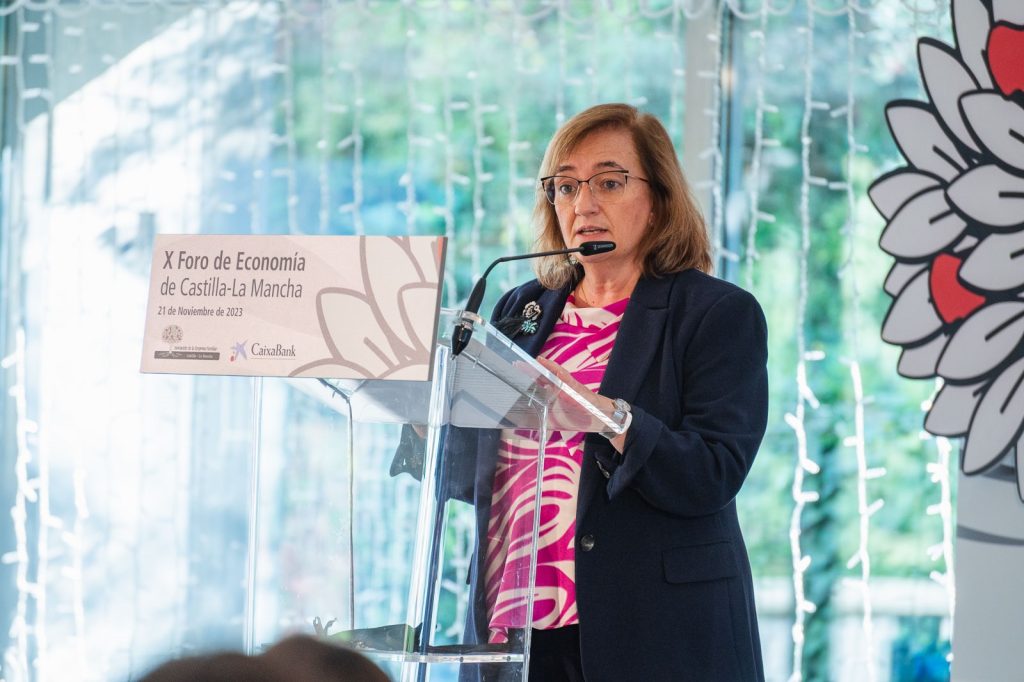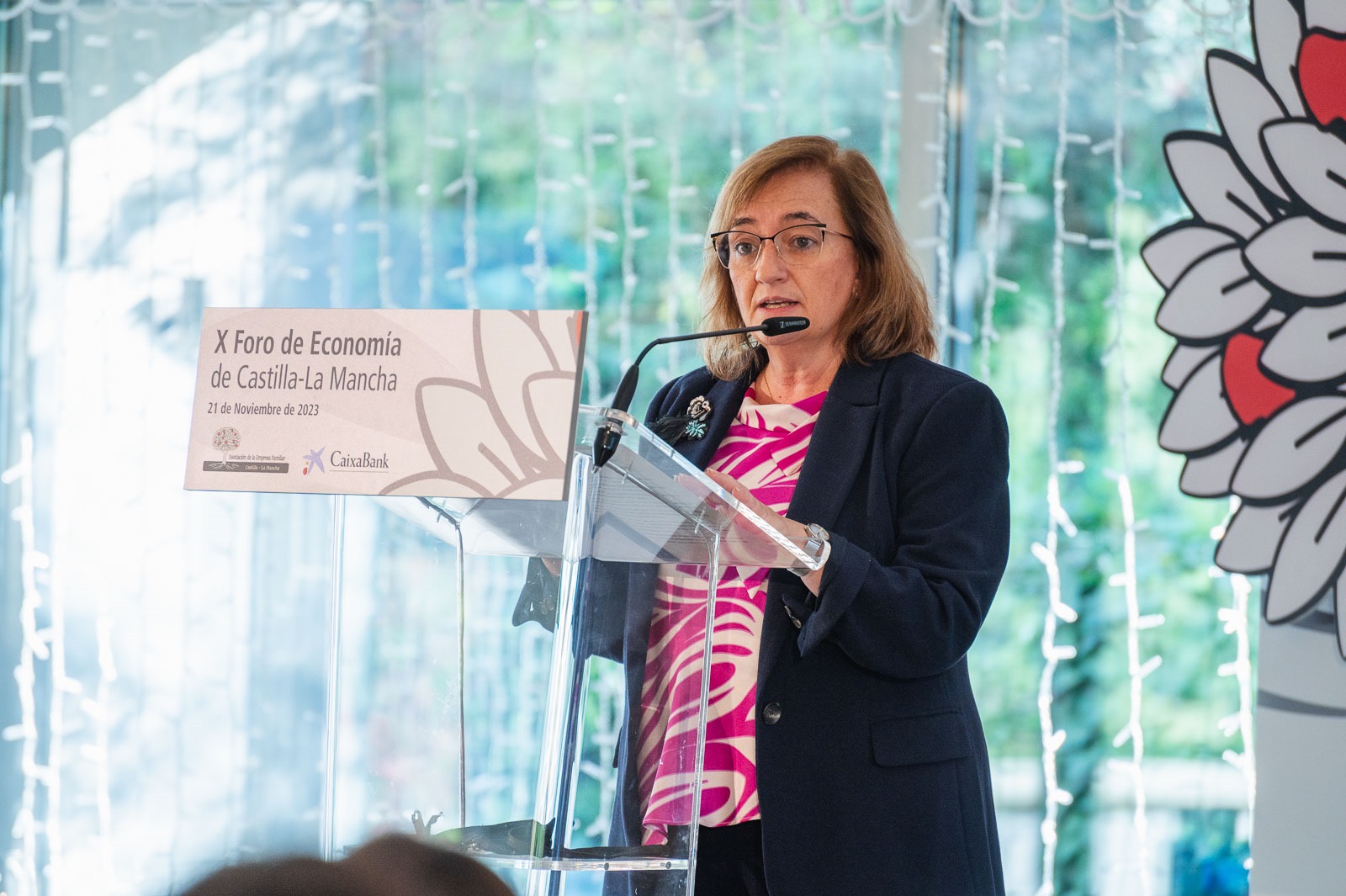
The President of the Independent Authority for Fiscal Responsibility (AIReF), Cristina Herrero, participated today in the 10th Castile-La Mancha Economic Forum, reviewing the situation, outlook and challenges of Spanish public finances at a crucial time for budgetary policy, in light of the upcoming return of fiscal rules and the need to prepare a medium-term fiscal strategy to comply with the requirements of European institutions, despite the complexity and uncertainty of the economic context.
As Cristina Herrero pointed out, 2024 will be the year in which quantitative fiscal restrictions are reinstated. While Spain does not have stability targets or a reference rate for expenditure, there is a numerical restriction imposed by the Economic and Financial Affairs Council (ECOFIN) that limits the growth of primary spending by the General Government Sector to 2.6%. AIReF’s estimates indicate that this figure can be achieved as long as certain conditions are met, including not extending measures to combat the energy crisis and inflation and ensuring that Territorial Administrations control their spending.
In this context, the President recalled that AIReF has recommended that the Ministry of Finance make use of existing coordination mechanisms – the Fiscal and Financial Policy Council (CPFF) and the National Commission of Local Administrations (CNAL) – to promote compliance.
Furthermore, in 2024, it will be necessary to prepare medium-term fiscal strategies (2025-2028) with a focus on reducing public debt, following the reform of the Stability and Growth Pact being negotiated in Brussels. According to Cristina Herrero, if the reform is approved as proposed by the Commission and within the timeframe set by the Spanish Presidency (December 2023), Spain should submit a very demanding fiscal strategy in April that ensures the corresponding reduction in debt over the next 10 years.
AIReF’s medium-term forecasts, published in the latest report, indicate the exhaustion of the process for reducing the public deficit and debt above 3% of GDP and 100% of GDP, respectively, although the recent announcements regarding the extension and expansion of some measures until the end of this year need to be evaluated. Furthermore, in the absence of new measures, demographics and the dynamics of debt with a growing interest burden will cause debt to resume an upward path as from 2028. As the President of AIReF pointed out, if this scenario pans out, Spain would have to make an adjustment of 0.64 percentage points of GDP each year during the period 2025-2028 to meet the requirements of the new framework.
In the case of Spain, defining a fiscal strategy poses an additional challenge due to the decentralisation of the State; accordingly, AIReF has been recommending starting work as soon as possible to ensure that the strategy is consistent with Brussels’ demands and involves all tiers of government. AIReF has also recommended, on numerous occasions, starting work on the inevitable reform of the national fiscal framework.
Complex economic context
As the President of AIReF stated, the economic context in which this strategy will have to be defined and deployed will be complicated and marked by great uncertainty. Since before the summer, the economy has been deteriorating, leading most institutions to lower growth forecasts for 2024. Specifically, AIReF now forecasts GDP growth of 1.7% and inflation to stand at close to 4%. According to the President, the withdrawal of measures will have an upward impact on inflation of close to 1 point in 2024, although the recent announcements regarding the extension and expansion of some of them need to be evaluated. In the medium term, AIReF estimates potential economic growth of 1.3% and inflation at close to the European Central Bank’s (ECB) target.
Despite this being a crucial time at present, the President of AIReF claimed that the response from the fiscal authorities has been limited. The Central Government has repeatedly responded to AIReF stating that now was not the time to define the medium-term strategy due to the high level of uncertainty, the dissolution of Parliament and the situation of a caretaker government. However, the shift towards sustainability requires planning.







